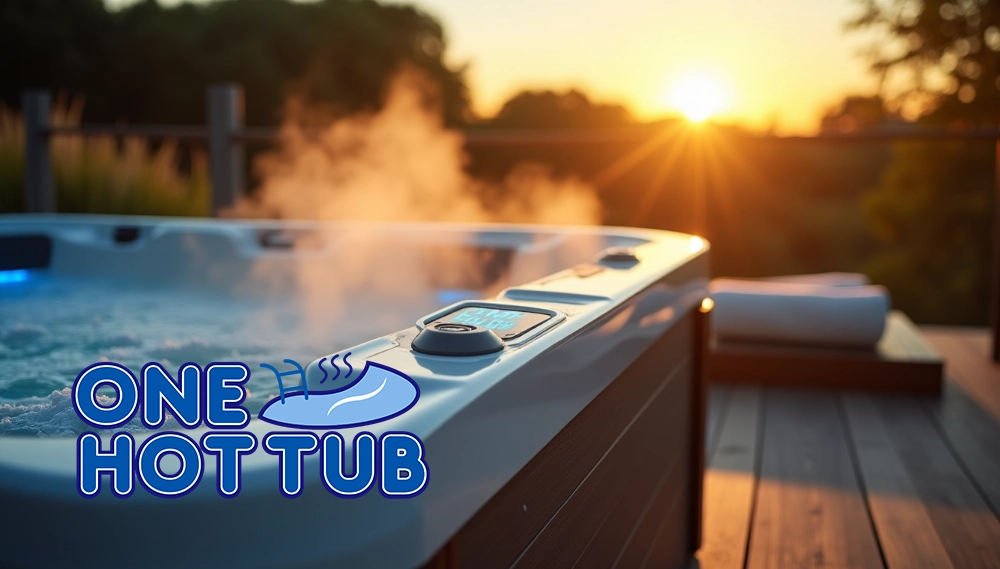Table of Contents - Can You Go In A Hot Tub on Blood Thinners
This blog post may contain affiliate links. As an Amazon Associate I earn from qualifying purchases.
Can You Go In A Hot Tub on Blood Thinners
The Truth About Hot Tubs and Blood Thinners: Expert Safety Tips
Ready to discover the surprising health benefits of your hot tub? Here’s something amazing – regular hot tub soaks could slash your heart disease risk by 28%! But wait – if you’re taking blood thinners, you might be wondering whether that relaxing dip is really safe for you. So the question is, can you go in a hot tub on blood thinners?
Let’s talk about something that catches many hot tub lovers off guard – blood pressure changes. Picture this: just 10 minutes of soaking can bring your systolic blood pressure down by 26.3 mm Hg. Pretty powerful stuff, right? That’s exactly why we need to be smart about hot tub sessions, especially if you’re taking blood thinners or watching your blood pressure.
Don’t worry – we’ve got your back! This friendly guide walks you through everything about hot tubs and blood thinners. From basic safety tips to emergency plans, you’ll learn exactly how to enjoy those wonderful soaks while keeping your health in check. Get ready to soak smarter and safer!
Basic Hot Tub Safety Principles
Ever wondered what lurks beneath those bubbling waters? The CDC’s findings might surprise you! Between 2015 and 2019, hot tub incidents caused 3,646 illnesses, 286 hospital stays, and sadly, 13 deaths across 36 states. Let’s dive into what makes hot tub safety so important!
Understanding Hot Tub Risks
Here’s something that might make you think twice – your cozy hot tub could be a paradise for unwanted guests! That warm, steamy environment creates the perfect home for bacteria. Watch out for Pseudomonas bacteria – these sneaky troublemakers can cause skin infections and inflamed hair follicles within just hours or days after your soak.
But wait, there’s more to keep an eye on:
- Tummy-troubling Cryptosporidium
- Legionella (the pneumonia culprit)
- Pesky ear infections from dunking your head
Did you know? One-third of water-related outbreaks happened at hotels and resorts, with hot tubs being the bad guy in 70% of these cases. Yikes!
General Safety Measures
Let’s get those chemicals just right! The CDC’s recipe for perfect hot tub water includes proper chemical balance:
- Chlorine: at least 3 ppm (parts per million)
- Bromine: keep it between 4-8 ppm
- pH levels: aim for 7.0-7.8
Temperature matters too! While your tub can go up to 104°F (40°C), most happy soakers prefer a cozy 100-102°F. And here’s a pro tip – keep those soaks to 15-20 minutes to avoid turning into a prune (and stay safe!).
Your Hot Tub Safety Shopping List:
- Digital Hot Tub Thermometer
- Features: Wireless monitoring, waterproof design
- Chemical Testing Kit
- Features: Tests for chlorine, bromine, and pH levels
- Non-Slip Hot Tub Steps
- Features: Weather-resistant, built-in handrail
Hot Tub Do’s and Don’ts:
Do’s
- Check chemical levels regularly
- Shower before entering
- Keep emergency contacts handy
- Install proper lighting
- Maintain clean surroundings
Don’ts
- Use electrical devices near water
- Drink alcohol while soaking
- Allow unsupervised children
- Exceed recommended soak time
- Use glass containers
Want your hot tub to stay fresh and inviting? Give it a good drain and clean every 60-90 days. Here’s a neat trick – if your nose catches strong chemical whiffs, something’s not quite right. A happy, healthy hot tub shouldn’t smell like a chemistry lab!
Blood Pressure and Hot Tub Use
Ready for a fascinating peek into what happens when you sink into those warm, bubbly waters? Your body’s response to hot tub soaking is nothing short of amazing! Let’s explore how your circulatory system dances with these changes, especially if blood pressure is on your mind.
Effects on Circulation
Picture this – the moment you slide into your hot tub, your blood vessels start their magic show! They expand like tiny balloons, creating quite a spectacle in your body. The numbers tell an incredible story – folks with high blood pressure can see drops up to 26.3 mm Hg. Even if your blood pressure is normal, expect a significant dip around 21.8 mm Hg.
Your 10-minute soak journey looks something like this:
- First act: Blood pressure takes a gentle dive
- Second act: Your heart picks up the pace to keep up
- Final act: Everything bounces back to normal about 5-10 minutes after you step out
Monitoring Your Blood Pressure Before Hot Tub Usage
Want to keep those soaks safe and sweet? Here’s your game plan:
Must-Have Safety Gadgets:
- Features: Waterproof design, smartphone connectivity
- Features: Water-resistant, countdown function
- Features: Floating design, easy-read display
Do’s
- Limit sessions to 10-15 minutes
- Keep water temperature below 104°F
- Monitor blood pressure before and after
- Stay hydrated
Don’ts
- Stay in if feeling dizzy
- Move quickly between temperature extremes
- Use hot tub alone if you have concerns
- Consume alcohol before or during use
Here’s something exciting – regular hot tub fans might enjoy a 28% lower risk of heart disease and 26% fewer strokes! But let’s play it smart with these golden rules:
- Skip the soak if your blood pressure reads above 180/110 mm Hg
- Hop out at the first sign of racing heart or dizziness
- Keep your water cozy at 100-102°F
- Bring a buddy for safer soaking
Taking blood pressure medications? Listen up! Heat and meds can team up to lower your blood pressure more than expected. Your safety checklist:
- Get your doctor’s thumbs-up first
- Watch how your body reacts
- Stay alert for wooziness
- Take your time getting out
Remember – these changes are just temporary visitors. Your blood pressure should wave goodbye to these effects minutes after you’re out. Still, if you’re managing heart concerns, keep those eyes peeled and stay sharp about these changes!
Creating Your Safety Protocol
Ready to become a hot tub safety champion? Let’s craft your perfect safety game plan! Whether you’re taking blood thinners or just being extra careful, these simple steps will keep your soaking sessions worry-free.
Pre-soak Checklist
Before you dip those toes in, let’s make sure everything’s just right:
- Water temperature between 100°F and 104°F
- Chlorine levels at minimum 3 ppm
- Bromine levels between 4-8 ppm
- pH levels maintained at 7.0-7.8
Your Safety Toolkit:
- Digital Chemical Testing Kit
- Features: Multi-parameter testing
- Instant results display
- Floating Temperature Monitor
- Features: Wireless connectivity
- Alert system for unsafe temperatures
- Timer with Emergency Alert
- Features: Waterproof design
- Preset safety intervals
During-soak Monitoring
Time to make those bubbles work their magic! Keep these safety tips in your back pocket:
Do’s
- Limit sessions to 15-20 minutes
- Stay hydrated
- Keep emergency contacts nearby
- Monitor for dizziness
Don’ts
- Drink alcohol during soaks
- Use powerful jets on bruised areas
- Enter without checking temperature
- Exceed recommended time limits
Here’s a friendly heads-up – those powerful jets might seem tempting, but if you’re on blood thinners, give them some space. And don’t forget to sip water – hot tubs love stealing our body’s moisture!
Post-soak Care
The fun’s not over yet! Follow these steps after your soak:
- Cool down like a pro – no rushing here! Sudden temperature changes aren’t your friend
- Treat yourself to 2-4 glasses of cool water
- Play detective – check for unusual bruising or dizziness
- Rinse off those chemicals with a refreshing shower
Taking blood thinners? Here’s your special after-soak checklist:
- Double-check your medication schedule
- Keep an eye out for unusual bruising
- Jot down any odd symptoms
Spotted a bruise? No panic – here’s your ice pack strategy:
- Cool it down for 10-20 minutes
- Three’s the charm – repeat throughout the day
- Props up those affected spots above heart level
Time to call your doctor if you notice:
- Two-week-old bruises playing hide and seek
- Skin looking angry or infected
- Pain or swelling that won’t quit
- Fever climbing above 100.3°F
Emergency Response Planning
What’s the secret to handling hot tub emergencies like a pro? Simple – having a rock-solid plan ready before you need it! Let’s build your emergency toolkit to keep everyone safe during those relaxing soaks.
Recognizing Warning Signs
Your hot tub sends out SOS signals when something’s not right. Watch for these red flags:
- Tiles feeling slippery or sticky? That’s your chemical balance waving a red flag
- Nose catching strong chemical whiffs? Time to check that water treatment
- Steam looking a bit too enthusiastic? Bacteria might be having a party
- Anyone looking uncomfortable? That’s your cue to act
Quick Action Plan:
- Guide them out of the tub (safety first!)
- Find a comfy, cool spot
- Speed-dial help if needed
- Keep track of what happened
Emergency Contact Information
Let’s create your safety command center! Pop this info board right by your hot tub:
| Contact Type | Details to Include |
|---|---|
| Emergency Services | Local emergency number |
| Medical Support | Nearest hospital address |
| Maintenance | Hot tub service provider |
| Property Manager | For shared facilities |
Your Emergency Toolkit:
- Waterproof Emergency Phone
- Features: Floating design, one-touch emergency dial
- Emergency Alert System
- Features: Wireless panic button, weather-resistant
- Medical Alert Bracelet
- Features: Waterproof, custom medical information
First Aid Essentials
Ready to stock your first aid superhero kit? Here’s what you need:
- Non-latex gloves (because safety starts with clean hands!)
- Bandages (think variety pack)
- Antiseptic wipes
- Adhesive tape
- Pain relievers
- Instant cold ice packs
- CPR shield
- Emergency blankets
- Scissors for clothing
- Tweezers
- Eye dressing
- Roller gauze
Your Emergency Game Plan:
- Check It Out:
- Is everyone awake?
- How’s the breathing?
- Spot any ouches?
- Jump Into Action:
- First aid to the rescue
- Call the pros if needed
- Clear the scene
- Keep Track:
- Write it down
- Gather those eyewitness accounts
- Document your hero moves
Do’s
- Keep first aid kit stocked
- Post emergency numbers clearly
- Practice emergency drills
- Document all incidents
Don’ts
- Delay emergency response
- Ignore warning signs
- Leave victims unattended
- Forget to update contact info
After the storm passes:
- Fill out those incident reports
- Restock your safety gear
- Review what worked (and what didn’t)
- Update your game plan
- Head feeling floaty or dizzy
- Breathing getting zippy
- Sweating buckets
- Brain fog rolling in
- Tingles or numbness making an appearance
- Features: Multi-parameter testing
- Instant results display
- Features: Wireless connectivity
- Alert system for unsafe temperatures
- Features: Waterproof design
- Preset safety intervals
Do’s
- Check chemical levels daily
- Shower before entering
- Keep emergency contacts handy
- Install proper lighting
Don’ts
- Use electrical devices near water
- Exceed recommended soak time
- Allow unsupervised children
- Use glass containers
Here’s a nose-worthy tip – your hot tub should smell fresh and clean. Getting whiffs of strong chemicals? That’s your tub waving a red flag!
Final Thoughts
Ready to make your hot tub sessions both safe and spectacular? Let’s wrap up everything you need to know about enjoying those warm, bubbly waters while taking blood thinners.
Here’s something that might surprise you – regular hot tub soaks could slash your heart disease risk by 28%! But before you jump in, remember that safety dance we talked about. Your perfect soak needs three key ingredients:
FAQs
Q1. Is it safe to use a hot tub while taking blood thinners?
Generally, hot tub use is safe for those on blood thinners. However, it’s crucial to consult your healthcare provider first and be cautious, especially in areas where clots are present or have been previously. Monitor for unusual bruising and exit immediately if you experience any discomfort.
Q2. What’s the recommended temperature and duration for safe hot tub use?
For optimal safety, maintain water temperature between 100-102°F (37.8-38.9°C). Limit your sessions to 15-20 minutes to prevent overheating while still enjoying the therapeutic benefits.
Q3. Can people with high blood pressure safely use hot tubs?
Hot tub use is generally safe for individuals with controlled high blood pressure. However, avoid hot tubs if your blood pressure exceeds 180/110 mmHg. Always consult your doctor before use and monitor how your body responds.
Q4. What warning signs should I watch for while using a hot tub?
Exit the hot tub immediately if you experience dizziness, lightheadedness, rapid breathing, excessive sweating, confusion, disorientation, or numbness and tingling. These could be signs of overheating or other health issues.
Q5. How often should hot tub water be changed and what chemical levels are safe?
Drain and refill your hot tub every three months to prevent bacterial growth. Maintain chlorine levels at a minimum of 3 ppm, bromine between 4-8 ppm, and pH levels between 7.0-7.8 for safe and hygienic use.



